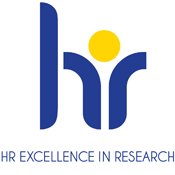The University of Strathclyde has held the EU HR Excellence in Research Award since 2011 in recognition of its commitment to supporting the personal, professional and career development of its researchers.
This accreditation reflects Strathclyde's commitment to:
- supporting researchers throughout their careers
- implementing the Concordat to Support the Career Development of Researchers
- meeting the requirements for research degrees set out in the UK QAA Quality Code
The award also acknowledges the University’s alignment with the principles of the European Charter for Researchers and Code for their recruitment by fulfilling these commitments. Visit the Vitae website for further information.
Concordat to Support the Career Development of Researchers
Strathclyde became a signatory to the revised Concordat to Support the Career Development of Researchers in June 2020.
This Concordat is an agreement between stakeholders to address sector-wide challenges in relation to the employment and support for researchers in UK Higher Education. It addresses the three main topics (‘Principles’) of Environment & Culture, Employment and Professional & Career Development. For each Principle, it defines a set of obligations for four key stakeholder groups involved in higher education research: Funders, Institutions, Researchers and Managers of Researchers.
A range of activities and support mechanisms for Strathclyde’s research staff have been implemented through the Concordat – a few examples are provided below:
- Researcher Development Time Policy– All research staff are supported to undertake at least 10 days’ professional development time per year (pro rata), along with additional time for developing their research identity and leadership skills.
- Career Development Advisor– Research staff have access to a professional careers advisor within the Organisational & Staff Development Unit (OSDU) who offers support through one-on-one consultations and other careers resources.
- The Researchers’ Group– Strathclyde’s research staff association offers a community for all researchers at the University and represents research staff interests in institutional committees and decision-making bodies.
- Research Integrity & Culture Week – The University invites all staff involved in research for a yearly celebration of research integrity and good research culture, with an event week offering opportunities for learning, discussion and exchange of best practices.
- Development opportunities - Evolving and relevant development opportunities around research and knowledge exchange are offered through SPIRAL and other institutional programmes, informed by our staff needs as well as emerging institutional and sector priorities.
Further information for Strathclyde staff can be found on the Researcher Development Concordat Sharepoint site (staff login required).
As a signatory to this Concordat, we are obliged to report annually to University Court. Please find these annual reports, which provide a summary of progress and plans, below.
Re-Accreditation Process
The University of Strathclyde retained the HR Excellence in Research Award in March 2022 following a ten year external review.
Re-accreditation of the award takes place in a four-yearly cycle of internal and external reviews. Our original two-year action plan based around the seven principles of the ‘Concordat to Support the Career Development of Researchers’ was put in place in 2011.
Between 2013 and 2019, we were successfully re-accredited with the award after carrying out alternating internal and external reviews every two years to assess the progress of our actions plan and expand the support we offer our researchers in consultation with our research staff community.
Following signing up to the revised Concordat to Support the Career Development of Researchers in 2020, we undertook a Gap Analysis against the revised Concordat Principles and developed an Action Plan which has been used in the documentation for the ten-year internal review process which re-accredited our award in early 2022.
In 2024, after two further years of activities enhancing our research support, we have reviewed this Action Plan and submitted updates on progress and future plans for the 12-year external review of the award.
The review reports, updated action plans, future action plans and case studies from each stage can be found below.
